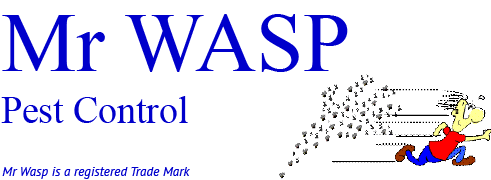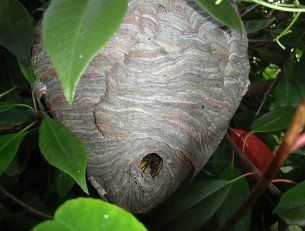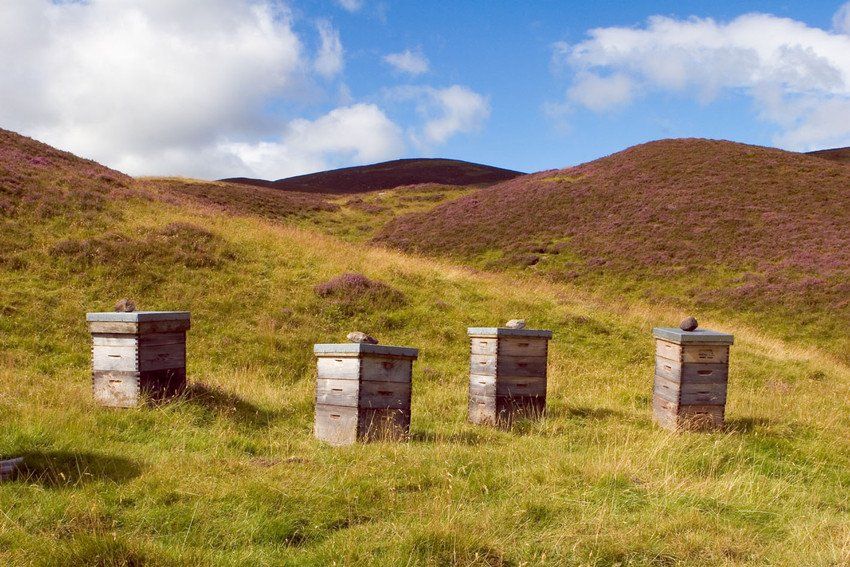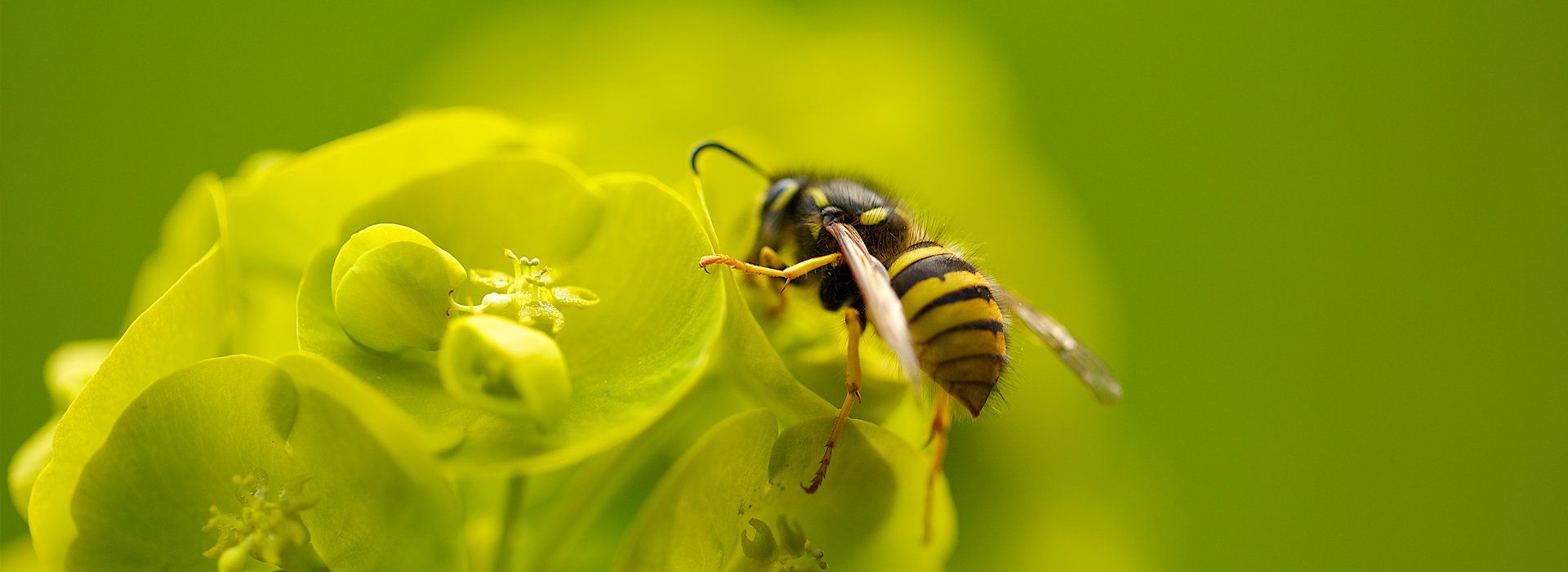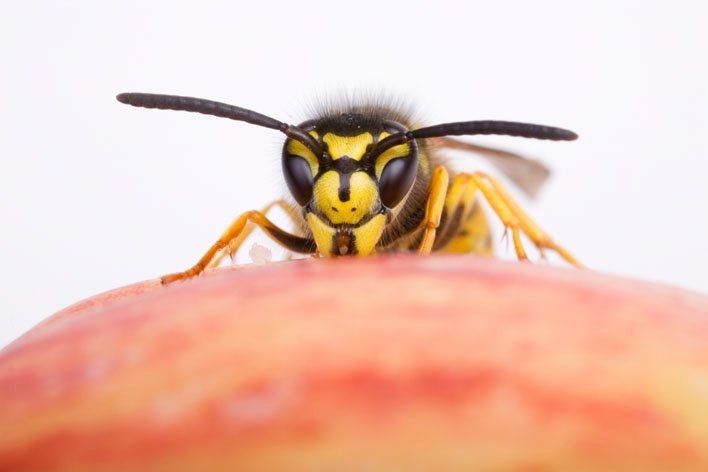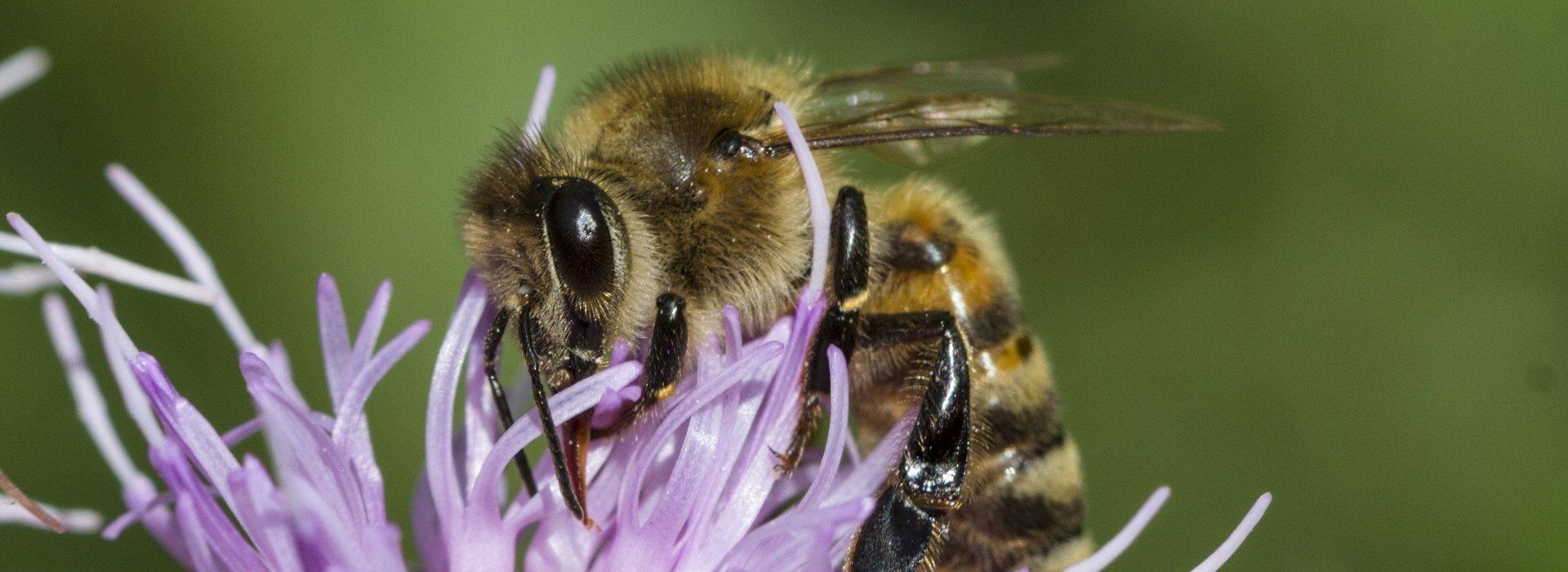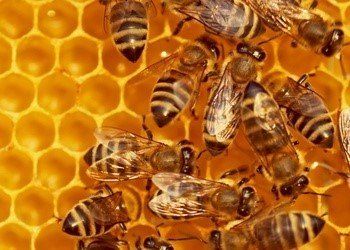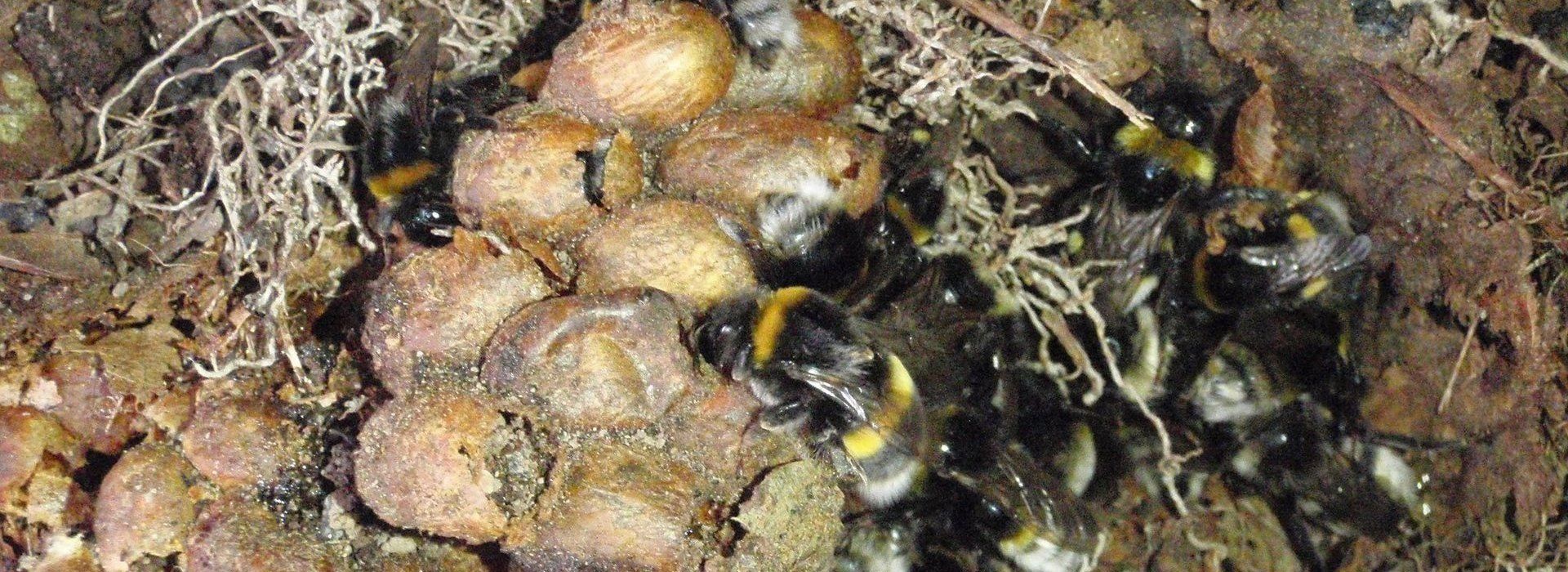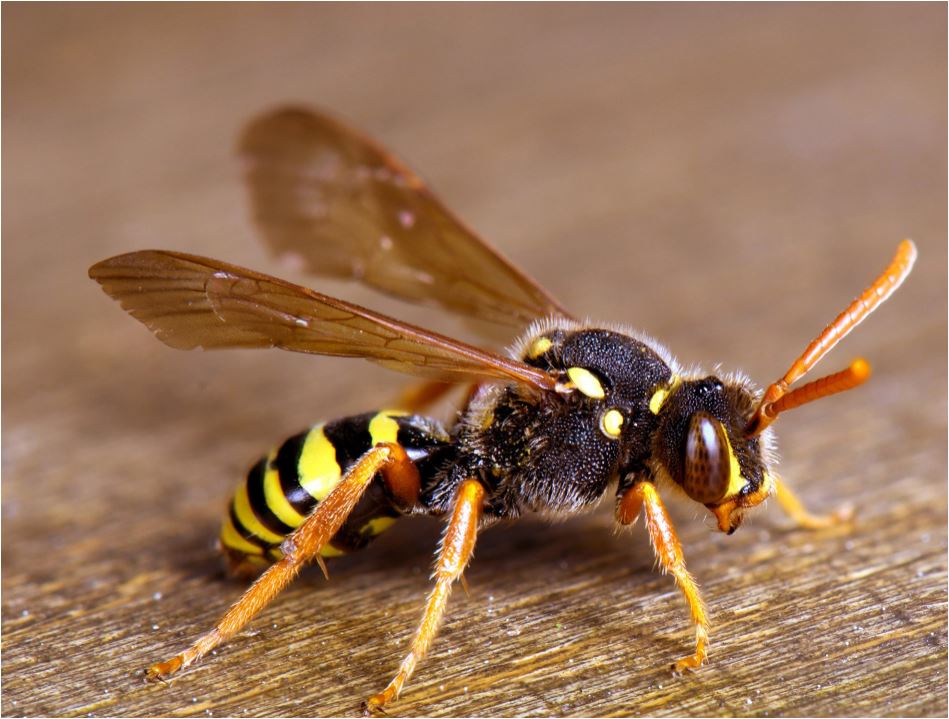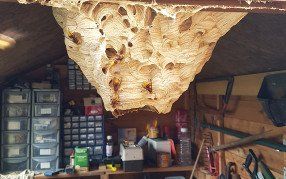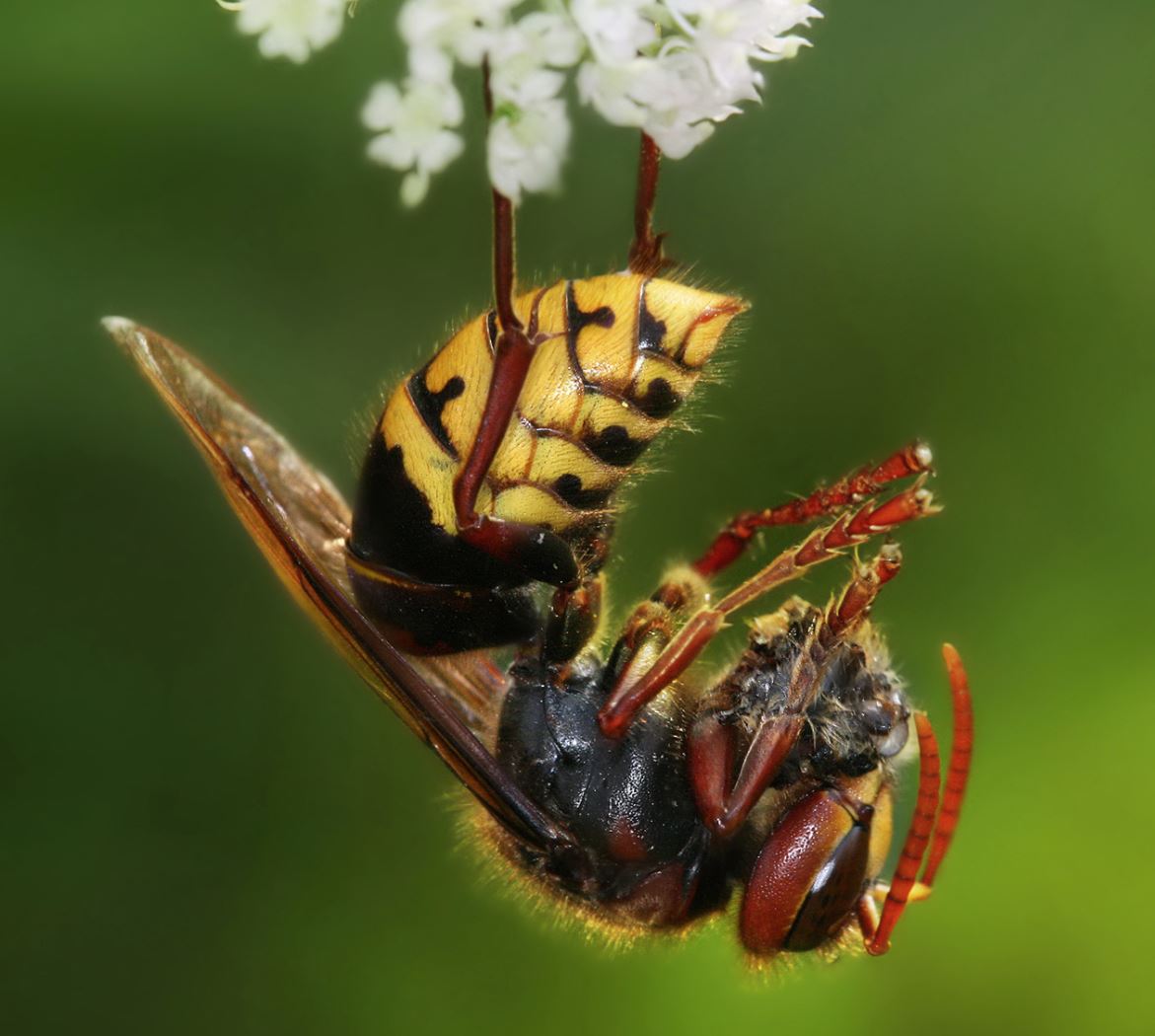Insect Control Tips for a Pest-Free Home
No one likes to be stung by wasps, bees or hornets and, for many, these stings can be life-threatening. If a person is allergic to stings from these flying insects, their throat could close up from the inflammation and they could go into anaphylactic shock. Either of these events could easily result in death.
With this in mind, it’s crucial to understand the warning signs of an insect infection if you know you are allergic or have young or elderly people living in the home who may be more vulnerable. Within this guide, we will cover all of the above as well as the risks you face, tips on how to prevent an infestation and what to do if one strikes.
Some Signs That You Might Have an Infestation on Your Hands
The very first sign that you might have a problem with wasps, hornets or bees is, of course, seeing a number of these flying insects around your property. It’s perfectly normal to experience seeing bees and wasps flying around your home - particularly in the summer and particularly you have plants like rosemary or lavender in your garden. However, seeing an inordinate number of these insects flying around your home probably means that you have a nest in or near your property. If you’ve noticed that food or sugary drink near your home has very quickly become a feeding ground for insects, then this is another indicator that you should be wary of.
Nests develop over time so, if you have noticed a large number of flying insects around your home, it’s important to nip it in the bud. Nests are far easier to deal with in their infancy, so look out for odd structures that look as if they’ve been built by bugs - especially structures with hive-like hexagon shapes.
Fully grown wasp and hornet nests take on a papery look with one or more entrance holes leading into the structure. You’ll often discover that these nests find their home in the attic, under your roof, in your shed, in the garage, near a tree trunk or behind some outdoor shutters. If you notice a large or small nest, you’ll need to seek out some help. However, to avoid that situation entirely, below are a few tips to control the risk of a pest infestation.
Pest Control Tips Before an Infestation Strikes
As we’ve said, it’s crucial to do everything you can to prevent an infestation before it gets too intense to control and there are a number of things that you can do to help the situation. From being creative with some DIY products to being more careful with how you dispose of food, here are some tips.
First of all, there are some habits that you should get used to when trying to ward off wasps, hornets and bees from nesting. Most obvious of these is to keep your windows and doors closed as much as possible which will prevent wasps, hornets and bees from entering your property. Secondly, ensuring that any rotting fruit which has fallen outside of your home is picked up and that all bins are properly secured will stop these flying insects from being attracted to your house.
Wasps feed on sugary food and drink, so it’s essential to ensure that any rotten fruit that is littering the garden is picked up straight away and disposed of properly. As well as this, you’ll need to keep an eye out for any holes or cracks in your walls or roof as these can be popular entrance points for wasps where they may start building a nest.
There are some products that you can make yourself which can help to stem the flow of your infestation and control pests. The areas around your home which are most susceptible to a wasp infestation are inside the roof, in the garage, in a shed and in any other covered or protected areas like a window frame or under a porch.
In these areas, you can help to dissuade wasps from taking over by applying wasp repellent serums to the timber found there. Using either a shop-bought or homemade solution in these areas is a great way to prevent wasps from landing. You’ll need eucalyptus oil, menthol and citronella oil as well as teak oil for the application.
Inspect Your Property and Make Amendments
As well as creating home-made products to ward off insects, there are a number of other checks and maintenance tips you should also consider. For example, double-check for any holes in your loft which should be patched up. As well as this, try to integrate light sources where possible. Adding light to smaller spaces where wasps are likely to take residence can help to discourage pesky insects; just a simple low-wattage light will suffice.
Out in the garden, a telltale sign of wasps making a nest is looking for ‘white tramlines’ which indicate that a queen wasp is stripping your furniture to use it to build a new nest. Crucial to preventing these wasps is performing regular checks. During these checks you should look for underdeveloped nests and some of the above signifiers. If a nest is still smaller than a tennis ball, you can probably dispose of it alone but once it gets larger you’ll need the advice of experts.
Finally, as your garden is likely to be where a wasp nest emerges, there are some general tips and tricks to stop them from getting into your home. Wasps are attracted to sweet-smelling plants like lavender and rosemary, so refrain from planting these too close to your property. If you have the space, opt for an area further away towards the back of your garden instead of near your home. Wasps and hornets are also attracted to fruit trees, as they provide them with sugary food, so, again, try and plant these trees further back from your home to protect yourself.
The Importance of Swift Hornet, Bee and Wasp Nest Removals
If you ever discover that a swarm of wasps or hornets have made themselves at home in your property, it’s crucial to talk to a professional and seek a solution. Some species can be deadly in large numbers and, if you have anyone in your home who is particularly vulnerable from age or allergies, the results can be terrible.
Never try to remove a developed nest by yourself and always seek the advice of an expert.
Mr Wasp: Pest Control Experts in South Wales
Mr Wasp has over four decades of experience helping our customers to deal with wasp, hornet and bee problems efficiently and affordably, making us one of the leading pest control companies across South Wales. Whether you’re a homeowner or a business, finding out that you have an insect issue can be a worrying and scary experience and a problem that you’ll want to get seen to as soon as possible.
When faced with a total infestation, you’ll need to work with humane and efficient extermination experts to ensure your safety as well as the safety of your property. If you find an infestation at your home or business, don’t hesitate to seek advice and a solution. Some of the horror stories that we have worked on should illustrate how important the process is.
To find out more about our pest control services, don’t hesitate to contact us today. You can visit us at our Cardiff head office at 114 King George V Dr N, Cardiff CF14 4EJ, call us on 029 2075 4796, email us at mr.wasp@btconnect.com or visit one of our other offices in either Bridgend, Barry, Newport, Chepstow, Pontypridd, Merthyr or Pontypool.